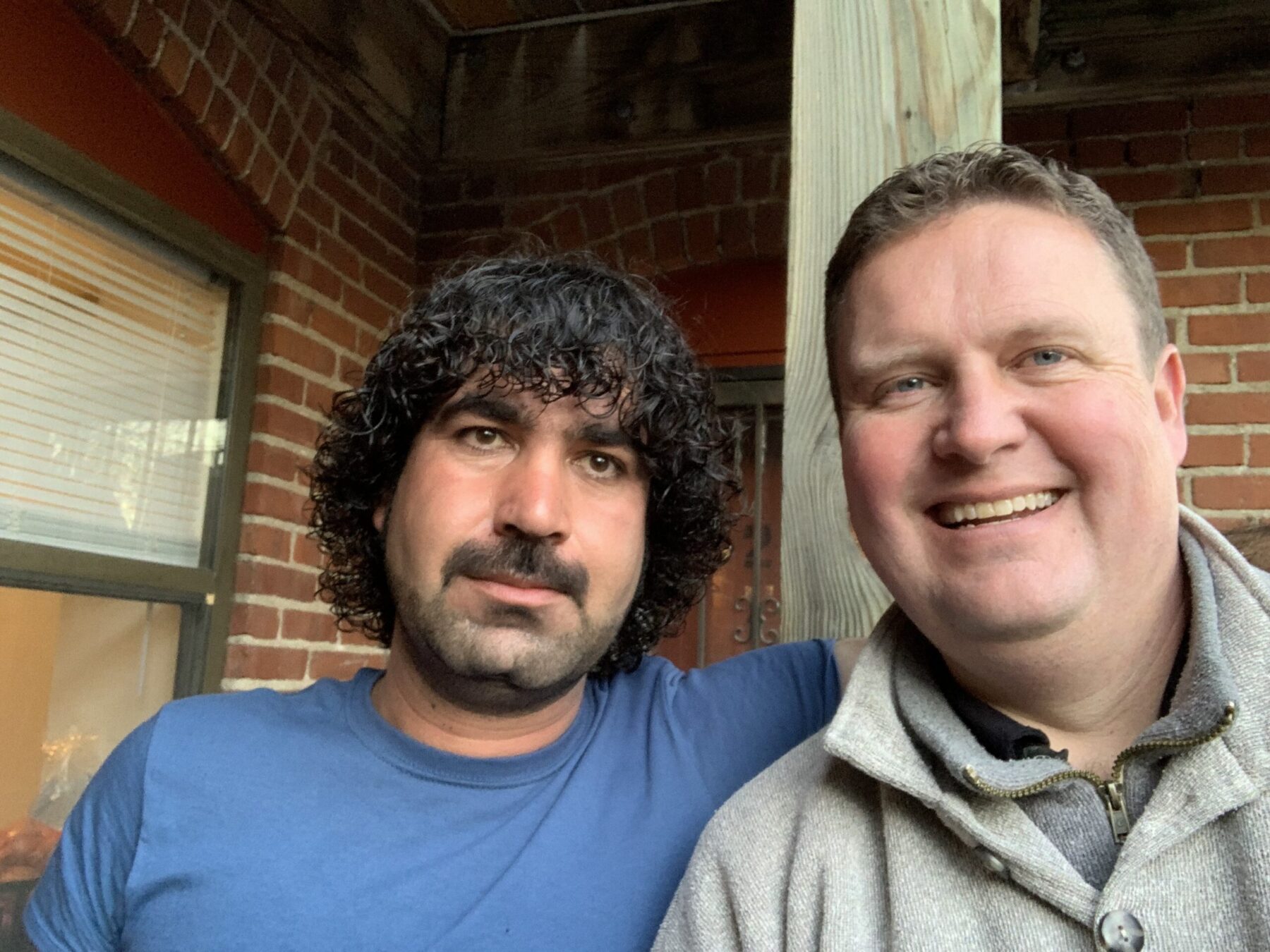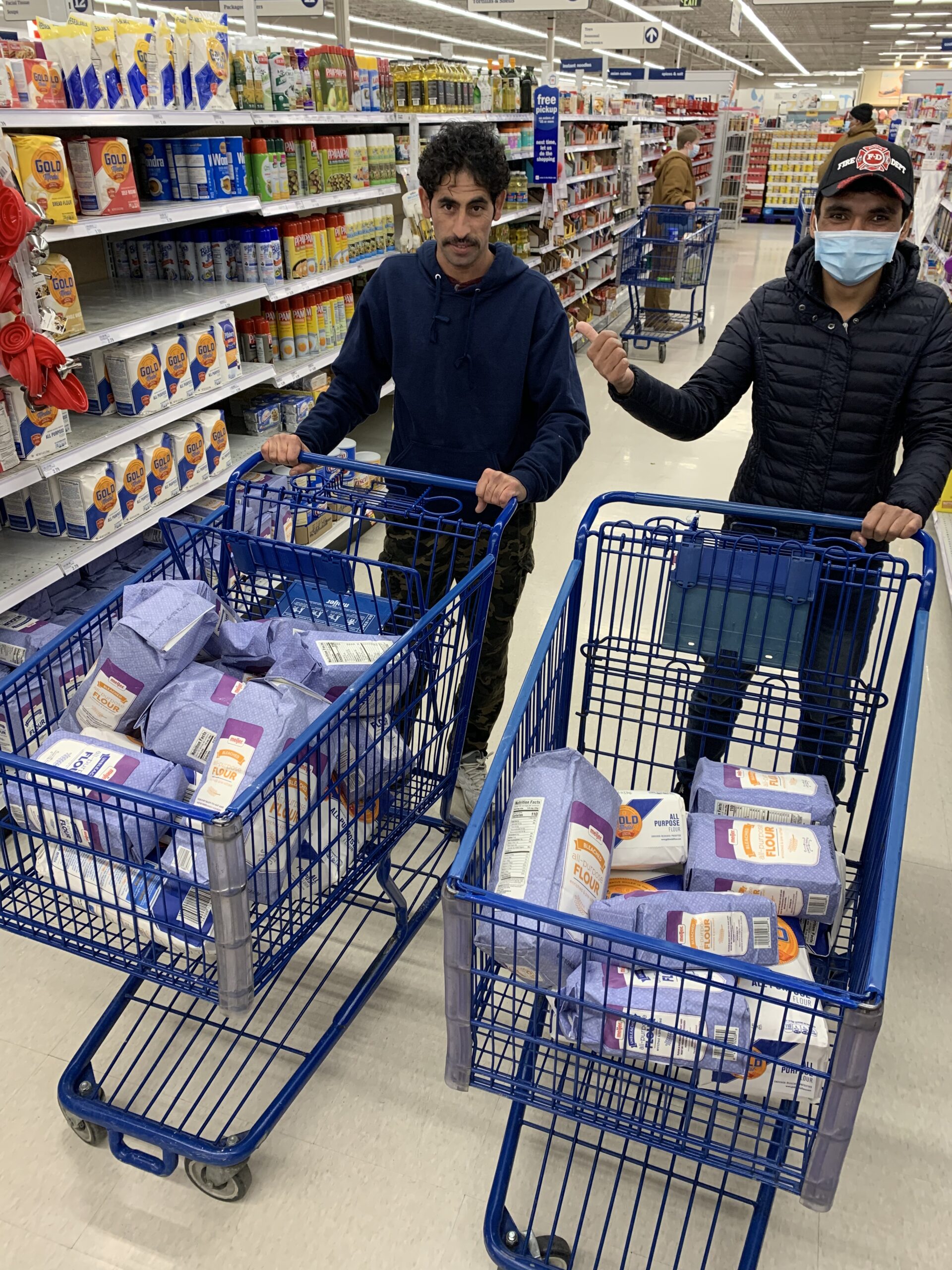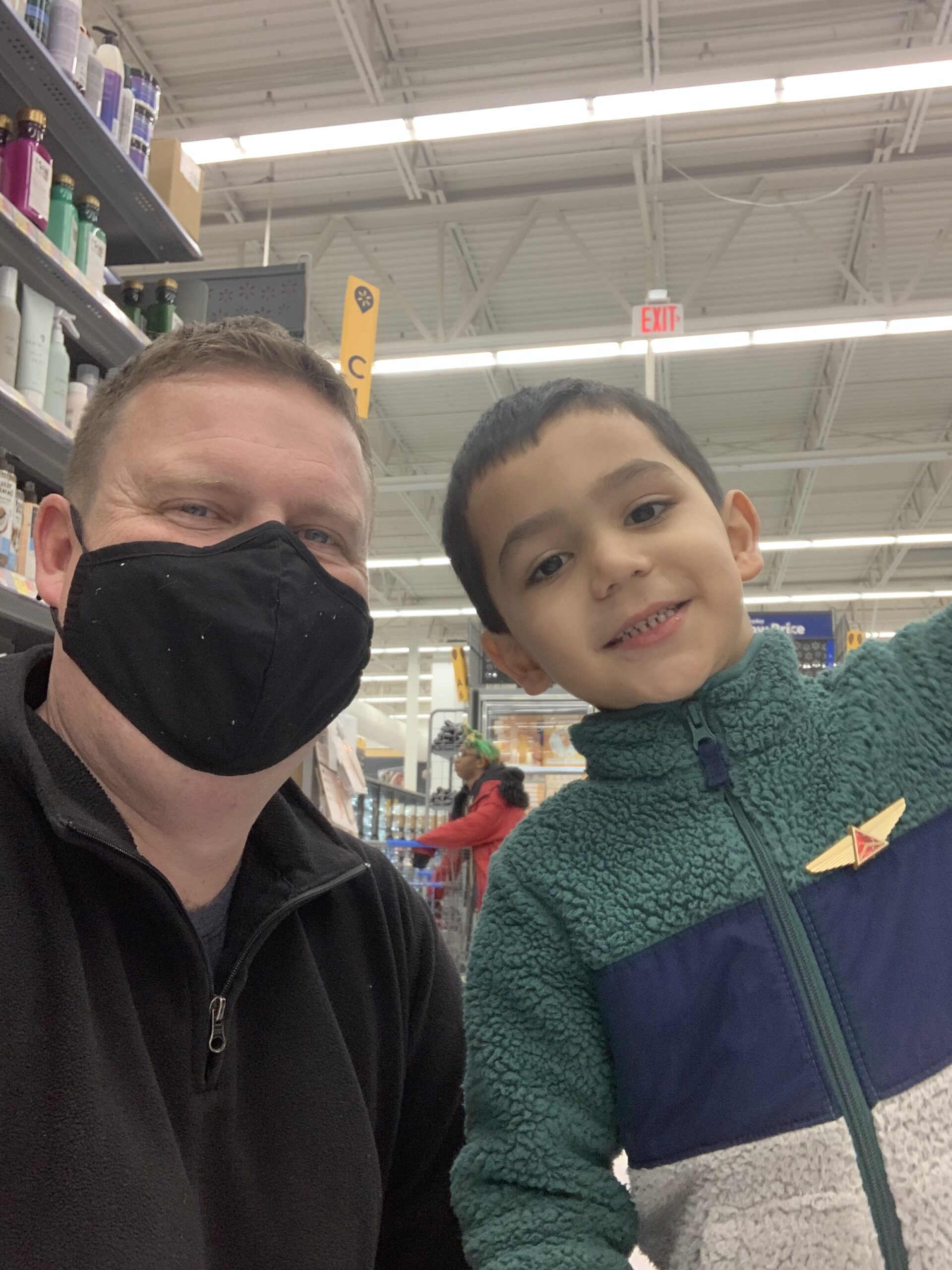HTM alumni house dozens of Afghani evacuees

HTM alumnus John Gremling, right, poses for a selfie with one of his Afghani tenants, who was among the thousands evacuated from Afghanistan in 2021. Photo provided by John Gremling
Written by: Tim Brouk, tbrouk@purdue.edu
Two alumni of Purdue University’s White Lodging-J.W. Marriott Jr. School of Hospitality and Tourism Management (HTM) showed true hospitality when they opened their hearts and doors to dozens of Afghan evacuees in Indianapolis.
Phil Klaus and John Gremling, both 2004 graduates, worked together to not only provide shelter to the displaced families — they helped establish the Afghans into central Indiana communities. Klaus and Gremling collaborated with Exodus Refugee Immigration in welcoming the war-torn men, women and children to Indiana. So far, 490 evacuees from Afghanistan have been documented in Indianapolis. Exodus has worked with 342, according to CEO Cole Varga.
General manager of TownePlace Suites in downtown Indianapolis, Klaus comforted 155 Afghans after their stay at Camp Atterbury, a federally owned facility operated by the Indiana National Guard.
“Think about yourself being displaced from your home and moving to a country half a world away, trying to gain some sort of normalcy, whether it’s the people, whether it’s the atmosphere you’re around,” Klaus explained, “We were trying to make people comfortable as much as possible. We wanted them feeling a home-like atmosphere.”
Some evacuees were just days from first landing on American soil after the August 2021 airlift from Afghanistan during the U.S. and NATO military withdrawal. Klaus’ last evacuees checked out March 8.
Gremling, who owns multiple rental properties in Indianapolis, leased numerous one-bedroom apartments to young Afghan men. Most were given one-year leases on apartments while they acclimate to Indiana. Some have already departed to meet up with displaced loved ones but others have been given jobs with the help of Exodus. Money is often sent back to family still in Afghanistan via Western Union.
In order to get these jobs and travel to these jobs, Gremling assisted his new tenants in obtaining auto insurance and other paperwork for employment. Then, there were the regular trips to the BMV, the halal market and late-night Meijer runs for bags of flour to bake naan-e-Afghani, long loaves of bread beloved in Afghanistan.
“Getting them housed was just the beginning,” Gremling said. “These individuals for the most part are men between the ages of 20-30. A totally new country, right? They don’t know how to get food stamps and jobs and cars and insurance and all this stuff.
“It was just trying to figure out how to push these guys forward.”


A tradition of helping
Since 2010, Gremling has welcomed hundreds of veterans experiencing homelessness to his apartment complexes, usually 30 to 40 per year. Like with the Afghans, his assistance did not stop with a door-key handoff.
“There’s a lot of little things you wouldn’t think about just on the setup and acclimation,” Klaus said. “For us, it’s more than just renting a room to somebody. It’s ‘Hey, what can we do to try to help do our small part in finding them normalcy into their lives on a daily basis?’ — whether that’s a food request for breakfast or helping them set up an iPhone.”
Gremling said Purdue “amplified” the lessons in servitude and leadership he grew up with. His experience as a resident assistant in Harrison Hall, serving on HTM boards and committees, and leading an HTM Career Day all helped shape his career in Indianapolis.
Communicating with those from different cultures was another soft skill imparted to Klaus and Gremling during their Purdue training. The Afghans came from impoverished conditions or a military upbringing. Most knew little English, and some didn’t know how to read or write in their home country’s language of Pashto.
“Some people are very rural. It’s a diverse group,” Klaus said of his former Afghan guests. “You take for granted what you have here, and the stories of what they’ve seen and what they’ve gone through to get to this country is just heartbreaking and fascinating at the same time.”

An evacuee family poses for a picture in one of Gremling’s apartments he opened to dozens of Afghanis fleeing their home country in 2021.Photo provided by John Gremling
Still, there are lighter moments. Gremling has been known to load up his truck with some of his Afghan residents for some downtown walks along the Indianapolis canal or even some spirited bowling.
“Probably 80% of our guys are part of the KPF (Khost Protection Force) from eastern Afghanistan,” Gremling said. “A lot of these guys have never lived by themselves. They’ve been part of the army for half their life. They’re still learning to grocery shop, learning to cook food, finances — all this stuff they have no experiences with. That’s certainly a challenge, but man, it’s fun.”
Next waves
Gremling expects some of his Afghan residents to eventually return overseas. When? No one knows. It could be several years, so the goal is to get them established enough to eventually move from his apartment buildings to their own houses.
“We’re here to connect, not fill 12-month leases,” Gremling said. “A lot of them are on their first jobs. I’m looking for that third or fourth job where they actually found what they want to do.
“A lot of them will stay exactly where they’re at until their families come over. We have to figure out how to get them out of Afghanistan. We have to figure out how to get them passports. At some point, the need becomes instead of one-bedroom apartments, it becomes four-bedroom houses.”
Tom Tuttle, housing manager for Exodus, has been impressed with Gremling and Klaus’ dedication to helping the Afghan evacuees.
“John was in here volunteering in our warehouse, helping put stuff away. He was recruiting volunteers because we were so overwhelmed with the amount of people we were receiving and the amount of donations that came along with that. We have to provide everything you need for permanent housing once you’re in there,” Tuttle recalled. “Phil was really clutch. Because we were getting so many people, we couldn’t keep up with securing permanent housing for them. He held rooms for us and gave us discounted rates so that we could house people there.”
The war in Ukraine has caused more than 2 million to flee to neighboring countries such as Poland and Romania. Leadership at Exodus said Ukrainian refugees are still “a year or two” from seeking asylum in the United States. Meanwhile, more Afghans are settling in Indiana and beyond. No matter where they’re from, Klaus and Gremling will be paying attention.
“The needs progress — vehicles and insurance and driver’s licenses. It’s an ongoing journey, and it’s fun to run with them,” Gremling said. “Next step, I think there are still a lot of things these people need. Donate to Exodus. There’s this wave of refugees. There’s maybe another 30 or 40 coming. I think there will be a continued need for exactly this relationship.”